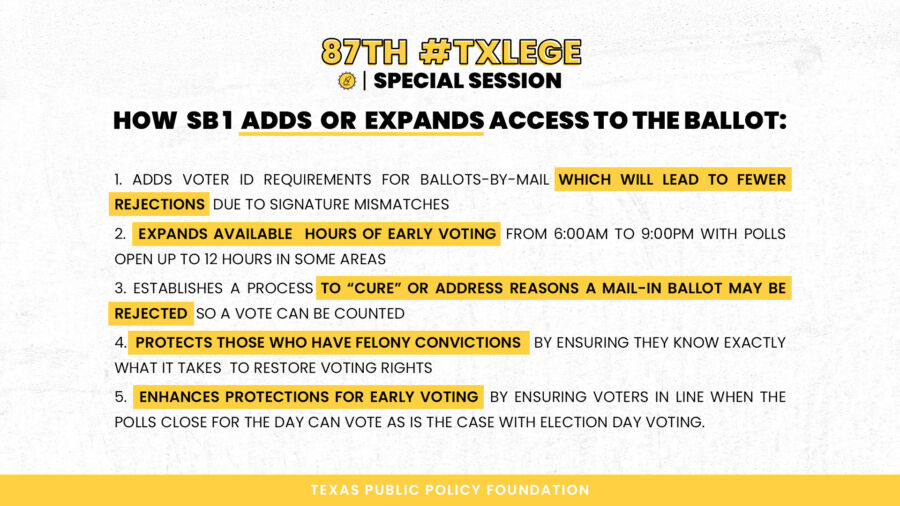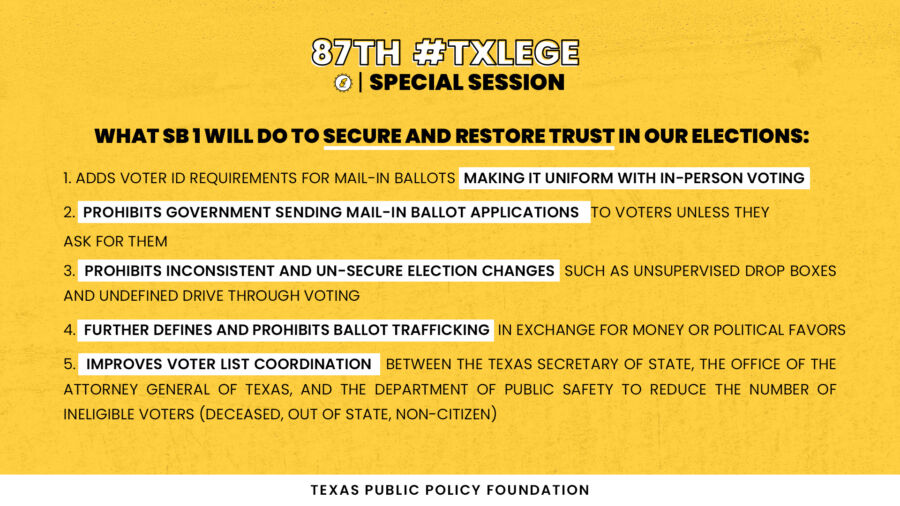Today, the Texas Public Policy Foundation released a statement regarding Senate Bill 1, a strong proposal that will protect Texas voters, ensure that every legal vote is counted, and defend against attempts to subvert election law by local elections officials. While some critics of the bill claim that SB1 will “destroy” democracy, the bill’s text tells a different story.
TPPF’s analysis concluded that the bill secures state elections, expands voting hours in many counties, and takes other measures that make elections safer. Far from “suppressing” voters, Senate Bill 1 would make it easier for legal voters to cast their ballots, while restoring faith in the election process.
“Senate Bill 1 expands access, rather than limiting it,” said Michael Leland, campaign director for TPPF’s Election Protection Project. “By expanding early voting hours, creating a process for curing mail-in ballots so they are not rejected, and ensuring those with felony convictions understand how to restore their voting rights, more Texans will be able to vote legally, and all will have renewed faith in our election system.”
Key Points
SB 1 adds or expands access by:
- Adding voter ID provisions for mail-in ballots, which would contribute to fewer rejections due to signature mismatches.
- Expanding available hours for early voting.
- Adding a process to “cure” or address reasons a mail-in ballot may be rejected so a vote can be counted.
- Protecting those with felony convictions by ensuring they know what is necessary to restore voting rights.
- Adding that anyone who is in line when a poll closes must be able to vote both during early voting and on Election Day.
- Requiring employers allow time off to vote during the early voting period, not just Election Day.
- Establishing a study for ways to assist disabled voters to vote independently.
SB 1 makes voting more secure and restores trust by:
- Adding voter ID for mail-in ballots as with in-person voting.
- Prohibiting unsolicited ballot applications to potential ineligible voters.
- Barring local officials from changing elections rules, such as allowing unsupervised drop boxes and undefined drive through voting.
- Better defining and prohibiting ballot trafficking in exchange for money or political favors.
- Improving voter list coordination between Sec. State, OAG and DPS to reduce the number of ineligible voters (deceased, out of state, non-citizen).
- Establishing a training manual for poll watchers.

